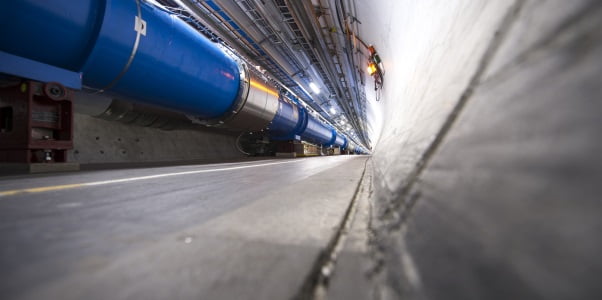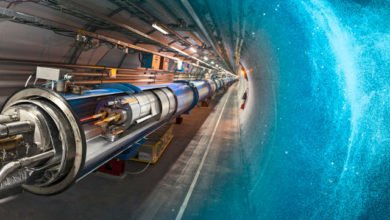
Everyone hoping for CERN to create microsingularities will have to wait a while longer, as the Large Hadron Collider will soon be shutting down until 2015.
A two-year downtime period will begin in February, when engineers will steadily warm the accelerator up to room temperature and begin necessary maintenance and upgrades, which will last until (at least) the end of 2014.
Call it a long-needed break after discovering that most elusive of particles, the Higgs Boson (well, as far as we know, heh).
In fact, the LHC hasn’t even reached full power, yet.
This is because of a malfunction that occurred back when it first powered up in September 2008, setting its operation back for over a year. Ever since, it’s been running at around half-power.
After this maintenance, we’ll hopefully see the LHC reach its full potential and unlock the path to even greater discoveries.
In particular, scientists hope to eventually use the particle accelerator to probe questions concerning dark matter and even the possibility of multiple universes.
So, that’s at least two years of not worrying about the LHC swallowing the planet. Scientists will perform one final experiment involving lead ions this month, though, so who knows.
In fact:
“Protons and lead ions have different masses and charges, so other colliders have used two magnetic rings to guide the beams. In the LHC, the beams will run in the same ring at slightly different speeds. “Nobody has ever run a collider quite like this before,” says CERN’s John Jowett.”
– NewScientist, LHC to stir up hot particle soup before 2013 shutdown
Hmm.
Meanwhile, Japan is still the go-to country for the newest particle accelerator, the International Linear Collider. While technically not as powerful as CERN’s Large Hadron Collider, it will fire electrons and anti-electrons in a straight line (as opposed to the LHC’s protons in a ring), allowing for different kinds of collisions and discoveries. And, potentially, a “cleaner Higgs signal.”
However, the ILC has a projected cost of around $8 billion, and is not guaranteed to go forward. If it does, we’re looking at a 2015-2020 construction date.
I’ll keep you posted!






